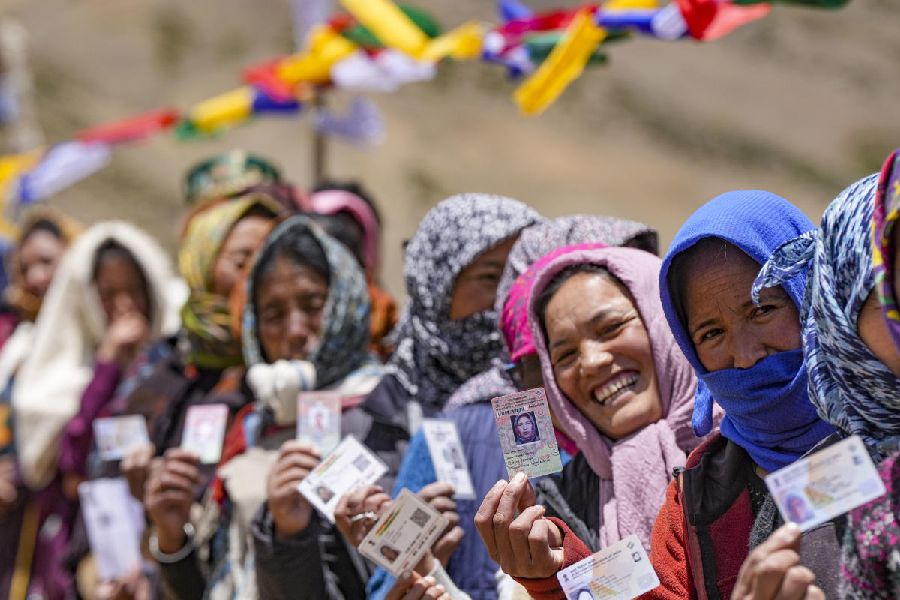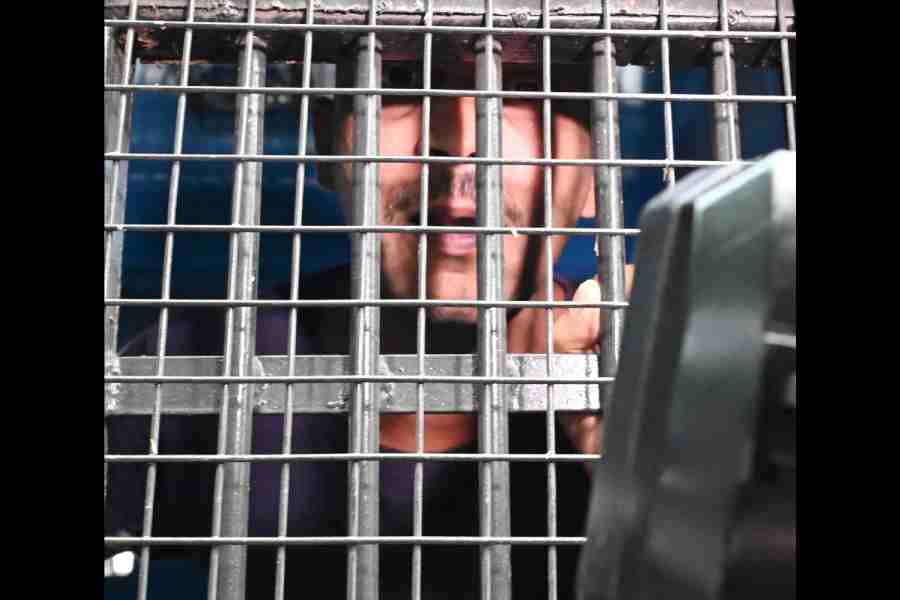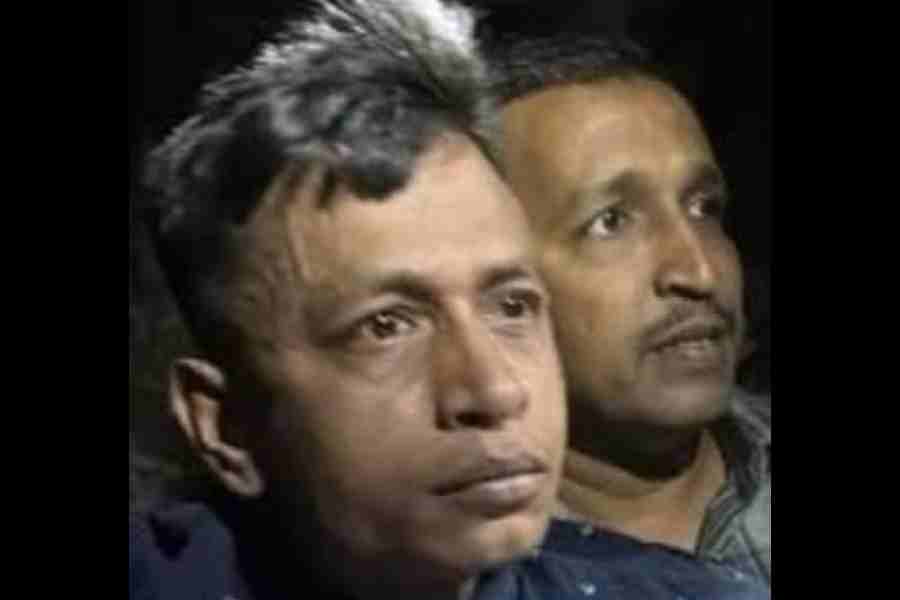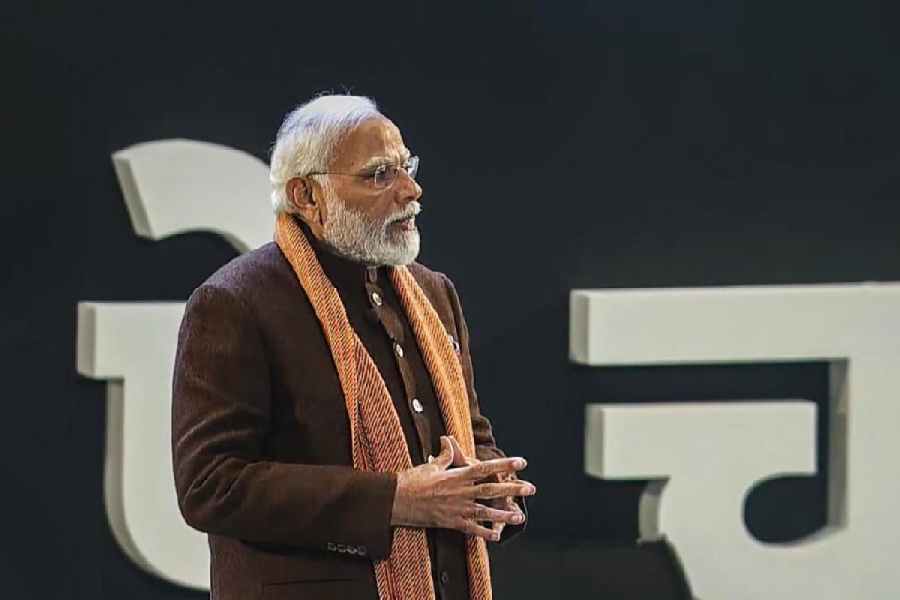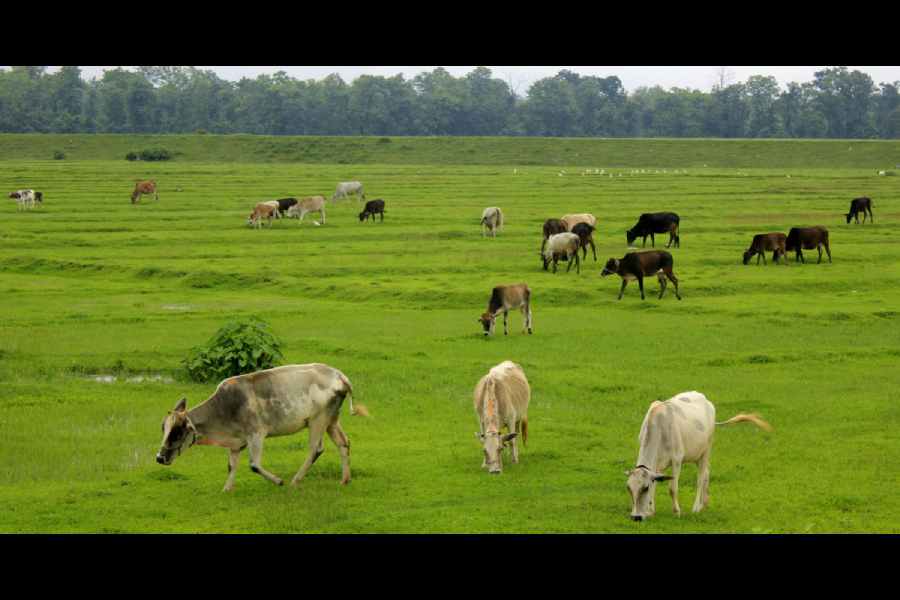There is an imperative need for holding simultaneous elections for various reasons as polls have become expensive and time-consuming, according to the proposed bill being brought to implement the ambitious 'one nation, one election' plan.
According to the constitution amendment bill listed for introduction in the Lok Sabha on Monday, the imposition of a Model Code of Conduct in several parts of the country that are poll-bound puts on hold the entire development programmes and causes disruption of normal public life.
Frequent poll code imposition also impacts the functioning of services and curtails the involvement of manpower from their core activities for deployment for prolonged periods for election duties, the 'Constitution (129th) Amendment Bill, 2024' underlined.
The bill seeks to insert a new article in the Constitution and amend three articles to put in place the mechanism to hold simultaneous polls to the Lok Sabha and state Assemblies.
The bill proposes to insert a new article 82A -- simultaneous elections to the House of the People (Lok Sabha) and all legislative assemblies and to amend Article 83 (Duration of Houses of Parliament), Article 172 (Duration of State Legislatures) and Article 327 (power of Parliament to make provision with respect to elections to Legislatures).
It also provides that after its enactment, a notification is to be issued by the President on the date of the first sitting of the Lok Sabha after a general election, and that date of the notification will be called the appointed date.
The tenure of the Lok Sabha will be five years from that appointed date.
The tenure of all state Assemblies, constituted by elections to the Legislative Assemblies after the appointed date and before the expiry of the full term of the House of the People, shall come to an end on the expiry of the full term of the Lok Sabha.
"Thereafter, all general elections to the House of the People and all Legislative Assemblies shall be held together simultaneously.
"In case of dissolution of the House of the People or a Legislative Assembly, sooner than the full term of the House of the People or the Legislative Assembly, the term of the House or Assembly constituted pursuant to elections shall be for the unexpired term of the House or the Assembly," it explained.
The bill pointed out that the general elections to the House of the People and all State Legislative Assemblies were held simultaneously in the years 1951-52, 1957, 1962 and 1967.
"However, due to premature dissolution of some Legislative Assemblies in 1968 and 1969, the cycle of holding polls simultaneously with the House of the People got disrupted," it recalled.
The statement of objects and reasons for the bills states that the measure is based on the recommendations of the high-level committee on 'one nation, one election' headed by former president Ram Nath Kovind.
While the Kovind panel had also proposed holding the municipality and panchayat polls along with the national and state elections in a phased manner, the Cabinet on Thursday decided to stay away, "as of now", from the manner in which local body elections are conducted.
The Constitution amendment bill to hold simultaneous polls to the Lok Sabha and state assemblies will not require ratification by at least 50 per cent of the states, government functionaries said quoting article 368 of the Constitution which deals with the power of Parliament to amend the Constitution and procedure.
The government has also listed another bill, which needs a simple majority for passage in the t wo Houses.
The Union Territories Laws (Amendment) Bill, 2024 proposes to make "consequential amendments" to the Government of Union Territories Act, 1963 (related to Puducherry), the Government of National Capital-Territory of Delhi Act, 1991 and the Jammu and Kashmir Reorganisation Act, 2019 to "align the holding of simultaneous elections along with the House of the People and State Legislative Assemblies".
Delhi, Puducherry, and Jammu and Kashmir are the three Union Territories with legislative Assemblies.
Except for the headline, this story has not been edited by The Telegraph Online staff and has been published from a syndicated feed.

